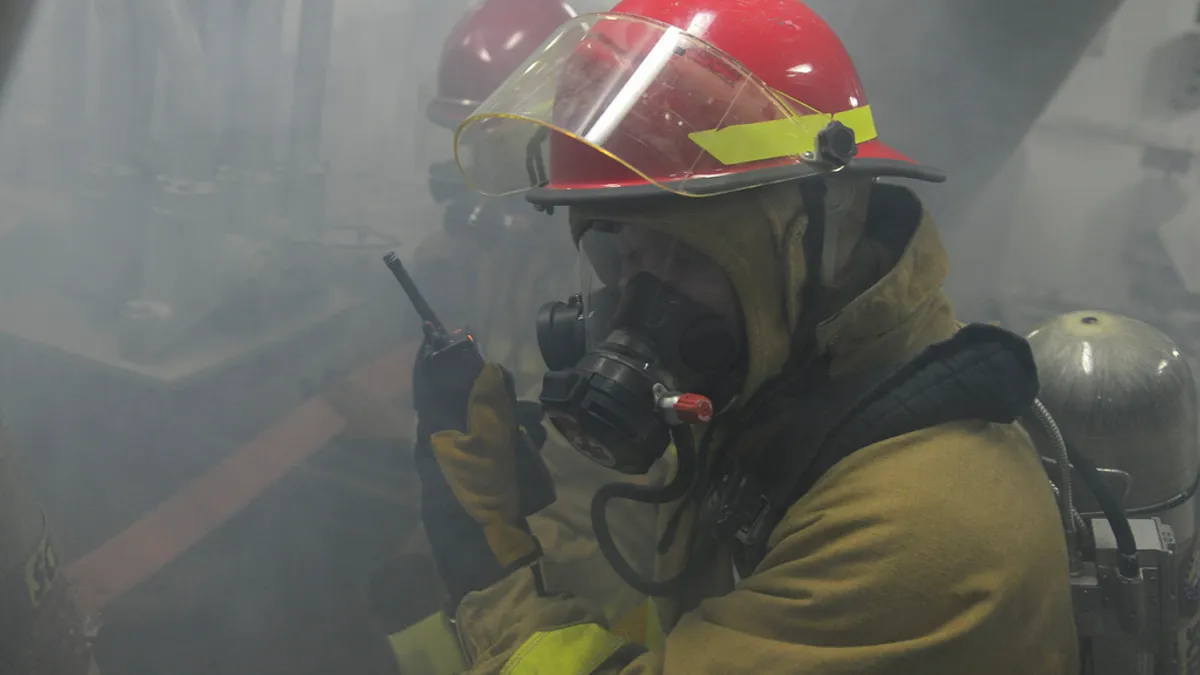Dive Brief:
- Wilson Trucking Corp. is suing three companies over their alleged responsibility for a four-alarm fire at the company's Charlotte, NC facility caused by a battery explosion last July. Six employees were hospitalized and an estimated $1.5 million in damage was caused, as reported by E-Scrap News.
- The fire source was a pallet of 4,500 non-alkaline batteries. Wilson says that because the batteries weren't packed correctly they were allowed to touch and eventually ignited. According to the complaint, the bill of lading listed these batteries as "computer parts" and a separate shipping order listed them as alkaline batteries.
- The lawsuit names Imaan International, Global Electronic Recycling (GER) and Echo Global Logistics. Each company was involved in the processing or shipment of the batteries at various points, in some cases subcontracting among each other, and are seen as responsible for the packing and labeling.
Dive Insight:
With Wilson seeking compensation for damages and punitive damages — and a separate lawsuit from a Wilson employee — this could become time-consuming, create a public relations nightmares and be costly for the three companies involved. So far they have pushed back on multiple fronts. GER's main point of contention is that since they were the first in the supply chain they don't bear responsibility for the actions of the other companies.
Similar questions about responsibility in the supply chain have also been raised when it comes to lawsuits involving stockpiled CRT glass. Last fall, one South Carolina property owner sued 11 solid waste agencies over the costs of material left behind by a bankrupt recycler. Because the recycling process often involves multiple steps across various companies or agencies, legal determinations can be very complicated.
Since each of these multi-step situations is different the Wilson suit may not set any precedents, but it is a reminder of the need for proper battery handling. Ohio-based Rumpke has experienced multiple fires at its Cincinnati recycling facility due to unexpected issues with lithium ion batteries and the items have caused similar problems at facilities across the country. Ongoing customer education and safe disposal options are seen as the best way to limit these incidents.











